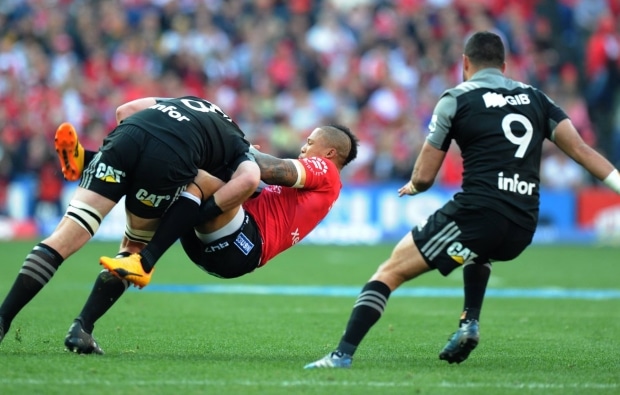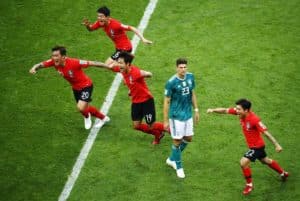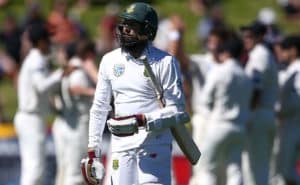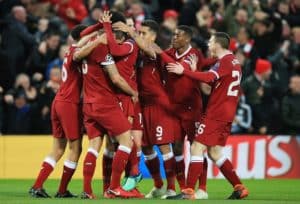The Super Rugby final highlighted the tactical and mental shortcomings in the Lions’ and indeed SA rugby’s game, writes JON CARDINELLI.
It’s been eight years since the Springboks won the Tri-Nations title. It’s been seven since a South African side won the Super Rugby tournament.
Why do the Boks and the better Super Rugby teams fail so consistently in the matches that matter? Why do they freeze in playoff situations and why do they refuse to learn from their mistakes?
The answers to these questions may be difficult to accept.
REPORT: Crusaders triumph after Lions see red
Give Johan Ackermann’s Lions their due. They are a rags to riches story in the context of the franchise’s struggles over the past five years, They are a class apart in the context of the Johannesburg-based side’s overall record in Super Rugby.
That said, we need to forget the Lions’ rousing performances across the preliminary stages and focus on the playoff showings of the past two seasons. We need to forget an admittedly compelling story about a special culture and coach and ask why they lost a final at Ellis Park that they really should have won.
Judge the Lions as you would judge any other finalist across the history of the tournament. Did the Lions show the necessary composure? Did they make the necessary tactical adjustments for the big occasion or did they make the fatal error of persisting with what worked in the regular season?
Consider the opposition, a New Zealand side and the most successful team in Super Rugby history. The Crusaders certainly impressed with their attacking feats during the conference stage. In the playoffs, however, their superior defence and tactical kicking came to the fore. And in the aftermath of the historic final win at Ellis Park, coach Scott Robertson didn’t hesitate to declare that ‘defence won the tournament’.
So much for entertainment.
The Lions froze during the early stages of the final. They had everything in their favour: a partisan crowd in excess of 60,000 people, weather and field conditions suited to their attacking strengths, as well as the knowledge that the Crusaders would eventually tire in the final 20 minutes after a taxing journey from Christchurch, New Zealand.
Why did they persist so boldly and so foolishly with tactics geared towards winning fans rather than winning trophies?
ALSO READ: Red card angers Ackers
Nobody wants to see a red card in a major final. Nobody wants to see a contest of such magnitude ended prematurely. And in a sense, that’s exactly what transpired when Kwagga Smith was given his marching orders after 38 minutes in the final at Ellis Park.
It was the right decision, though. We could argue about the laws for days on end, but Smith and the Lions knew the laws before the game commenced.
Smith made a crucial mistake and cost his team dearly. That error in judgement robbed the Lions of a player in the second half. Going by what was said by both teams in the aftermath, it probably detracted from the Crusaders’ achievement (no team had ever travelled across the Indian Ocean to win a final prior to the 2017 decider).
The Lions were in trouble long before Smith was sent off, though. The Crusaders, backing an aggressive defensive approach that had served them well in the preceding playoffs against the Highlanders and Chiefs, won the collisions and forced the Lions’ decision-makers to operate well behind the gainline. Their option-taking at the breakdown was excellent, as was their use of the ball following a turnover.
The All Blacks have won many tight games over the past decade by favouring such a strategy. So much is made about the New Zealanders’ attack, and yet it’s their defence and game management that has so often meant the difference between winning a trophy and finishing a tournament as also-rans.
South African rugby needs to strive for more than entertainment if it hopes to end its seven-year trophy drought. The Stormers have made running rugby their priority this year, with mixed results. The Lions showed over the course of the playoffs, and especially in the first half of the final, that they want for something in the tactical department.
Meanwhile, the best New Zealand rugby teams continue to strike the right balance between playing an attractive brand in the regular season, and then favouring pragmatism in the knockouts. It’s the reason why they have won four Rugby Championship titles and five Super Rugby trophies since 2010, and why South Africa have won none.
Photo: Gallo Images





